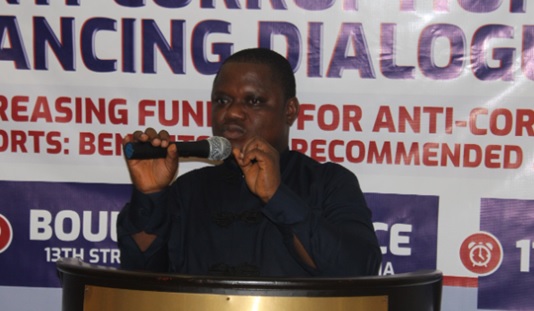The recent one-day Anti-corruption Policy Dialogue organized by the Center for Transparency and Accountability in Liberia (CENTAL), with funding support from the Embassy of Sweden in Liberia and the Swedish International Development Cooperation Agency (SIDA), has spotlighted the critical role of financial backing in bolstering Liberia’s anti-corruption initiatives.
Held under the theme “Increasing Funding to Anti-corruption Efforts: Benefits and Recommended Actions,” the dialogue provided a timely platform for stakeholders to deliberate on strategies to enhance the effectiveness of the national budget as a tool for anti-corruption and reforms.
The importance of adequate funding for anti-corruption efforts cannot be overstated. Without sufficient resources, public integrity institutions struggle to carry out their mandates effectively, thereby weakening the country’s ability to combat corruption and promote transparency. As Senator Amara Konneh and Speaker Fonati Koffa highlighted during a previous event, Liberia’s legislature must prioritize transparency and accountability in its financial management to regain public trust.
The generous funding from the Embassy of Sweden in Liberia and SIDA demonstrates international recognition of Liberia’s efforts to tackle corruption. However, sustainable progress requires a concerted effort from both domestic and international stakeholders. It is crucial for the Liberian government to match this international support with its commitment to allocate adequate resources to public integrity institutions such as the General Auditing Commission (GAC), Liberia Anti-corruption Commission (LACC), Financial Intelligence Agency (FIA), Public Procurement and Concession Commission (PPCC), and the Internal Audit Agency (IAA).
Moreover, transparency in the allocation and utilization of funds is paramount. A transparent budgeting process and robust financial oversight mechanisms will not only ensure that funds are used efficiently but also foster public trust and confidence in the government’s anti-corruption efforts.
The dialogue’s emphasis on “Benefits and Recommended Actions” signifies the need for actionable strategies that go beyond mere discussions. Concrete steps must be taken to translate the insights and recommendations from the dialogue into tangible outcomes. This includes setting clear funding targets, establishing accountability mechanisms, and implementing reforms that strengthen the anti-corruption framework in Liberia.
In conclusion, while the one-day Anti-corruption Policy Dialogue has laid a solid foundation for enhancing funding to anti-corruption efforts in Liberia, the real work begins now. It is incumbent all stakeholders, both domestic and international, to collaborate closely and take decisive actions to ensure that Liberia’s anti-corruption initiatives are adequately funded, effectively implemented, and sustainable in the long run.
The fight against corruption is a collective responsibility, and with the right resources, strategies, and commitment, Liberia can make significant strides towards a more transparent, accountable, and prosperous future.







